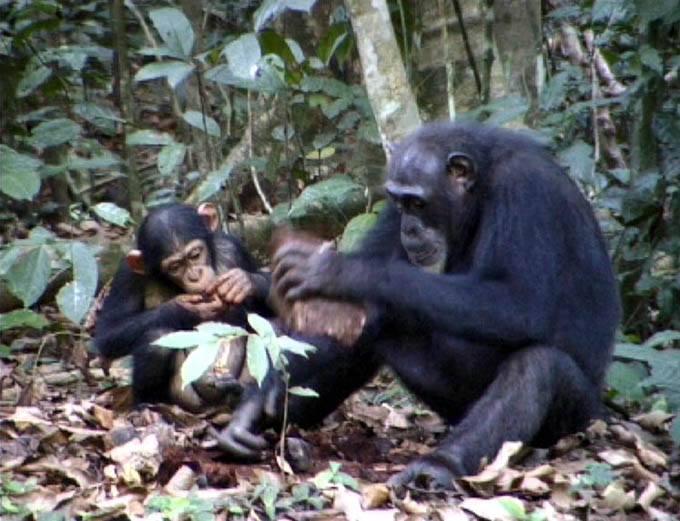Moral behaviors may be learned as part of an open behavioral program.
 A focus on neural processes, especially in contrast to genetics, emphasizes the importance of open behavioral programs. Not all behavior is innate, or closed, with narrow predetermined stimulus-response patterns. With appropriate neural structures, learning is possible. The flexibility afforded by learned behavior allows organisms to respond to local environments, which may change during an organism's lifetime or vary from organism to organism within the same species. Evolution may thus favor the brain's potential for behavioral plasticity and for placing "values" on certain responses. Moral behavior — or immoral behavior — may be partly (or even largely) learned and shaped by local social environments.
A focus on neural processes, especially in contrast to genetics, emphasizes the importance of open behavioral programs. Not all behavior is innate, or closed, with narrow predetermined stimulus-response patterns. With appropriate neural structures, learning is possible. The flexibility afforded by learned behavior allows organisms to respond to local environments, which may change during an organism's lifetime or vary from organism to organism within the same species. Evolution may thus favor the brain's potential for behavioral plasticity and for placing "values" on certain responses. Moral behavior — or immoral behavior — may be partly (or even largely) learned and shaped by local social environments.
 Open behavior systems lead to a new level of organization: the psychological. To achieve plasticity, a learning system needs to be decoupled from particular inherited behaviors. Organic evolution can then act only at the level of the whole learning system. Fitness is determined by how well the system in its entirety performs, not whether each and every behavior, gauged separately, enhances survival and reproduction. Individual acts thus become relatively insulated from direct natural selection. In addition, learning has the potential to modify, or regulate, innate behavior or dispositions. The psychological level thereby becomes emergent, exhibiting new interactions and properties relatively independent of lower level functions (genetic and physiological), and able in part to influence them.
Open behavior systems lead to a new level of organization: the psychological. To achieve plasticity, a learning system needs to be decoupled from particular inherited behaviors. Organic evolution can then act only at the level of the whole learning system. Fitness is determined by how well the system in its entirety performs, not whether each and every behavior, gauged separately, enhances survival and reproduction. Individual acts thus become relatively insulated from direct natural selection. In addition, learning has the potential to modify, or regulate, innate behavior or dispositions. The psychological level thereby becomes emergent, exhibiting new interactions and properties relatively independent of lower level functions (genetic and physiological), and able in part to influence them.
Organisms with open behavior accordingly achieve a degree of autonomy (Murphy and Brown 2007). The consequences for interpreting morality are profound. For example, autonomous organisms may make authentic choices (not strictly dictated by heredity). Emergence and autonomy provide a biological context for interpreting many major philosophical concerns: intention, agency, and free will — which are only meaningful at the mental, or psychological, level (Hofstadter 1979; Sterelny 2001).
Autonomy also leads to individual identity. Even organisms with identical brains may behave uniquely, due to different learning histories or environments. Cultural variation is also possible. Organisms [with open behavior] have the potential to develop a wide range of values, whether moral or immoral, not determined strictly, or exclusively, by their genes.